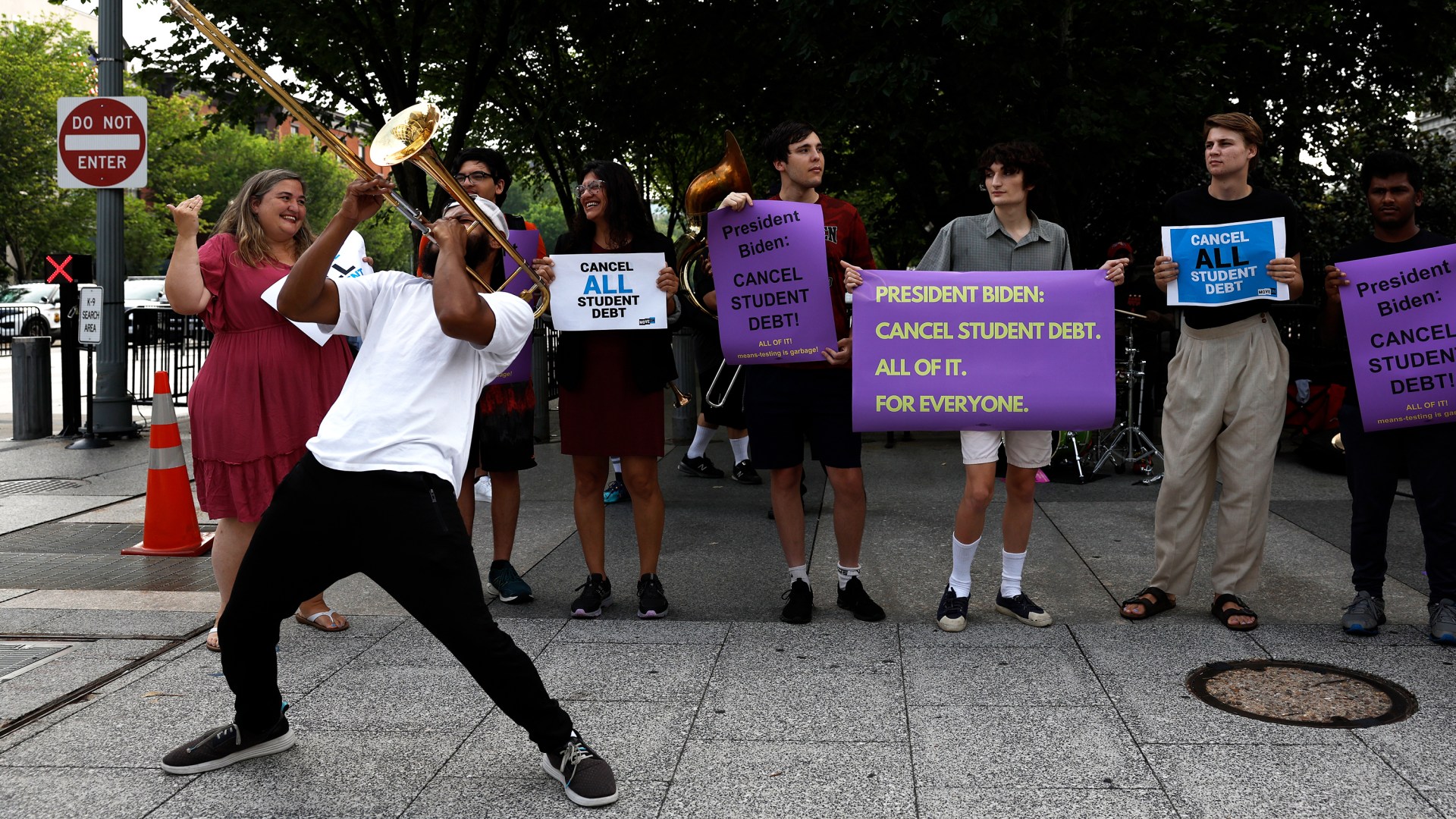Once President Joe Biden followed up on his promise to cancel $10,000 to $20,000 per borrower in student loan debt for eligible households, Christians responded by invoking a host of biblical references from Old Testament concepts like jubilee to the parables of Jesus in the New Testament.
Over a two-day period last week, searches for debt-related topics surged to 20 times above average on BibleGateway. Four verses—for and against loan forgiveness—were the top-gaining passages on the site:
- Exodus 22:25 — “If you lend money to one of my people among you who is needy, do not treat it like a business deal; charge no interest.”
- Deuteronomy 23:19 — “Do not charge a fellow Israelite interest, whether on money or food or anything else that may earn interest.”
- Psalm 37:21 — “The wicked borrow and do not repay, but the righteous give generously.”
- Ecclesiastes 5:5 — “It is better not to make a vow than to make one and not fulfill it.”
Searches for keywords “usury,” “paying debt,” “charging interest,” “debt,” “forgiveness of debt,” “debt paid in full,” and “paying your debts” were up. We heard from three Christian thinkers about how scriptural principles inform our stances on governmental debt forgiveness.
Matt Tebbe, cofounder of Gravity Leadership, author of "Having the Mind of Christ" and Anglican priest in Indianapolis
As Christians, we owe our very existence to debt forgiveness.
Christ loved us by forgiving us the debt of our sins (1 John 4:10), and he commanded us to love each other in the same way (John 13:34). To love as Jesus loves us is to participate in the debt-canceling reciprocity of God’s kingdom economy. Jesus instructs us to pray that our debts be forgiven as we forgive those indebted to us (Luke 11:4; Matt. 6:12, 14), referring to what we owe each other economically and socially. Our modern, secular vision often bifurcates the spiritual from the material. But in God’s kingdom, the social and economic dimensions are spiritual. What would it look like to take seriously God’s condemnation of usury and predatory lending that creates debt (Ex. 22:25; Ezek. 22:12)? To return ancestral land and release people from unjust debt as participation in God’s kingdom (Lev. 25;8–17)?
The Scriptures assign much more moral turpitude to the rich who profit off the poor unjustly—devouring widows' houses and hoarding riches—than they do to the poor who lose their lives to debt (Mark 12:40; Luke 6:24–26; James 5:1–6).
Christians, let us commit to forgive debt in a way that benefits the disenfranchised and impoverished more than it does the powerful and wealthy—loving each other as Christ loved us.
Paul Matzko, author of "The Radio Right" and Research Fellow at the Cato Institute in Washington D.C.
Some public thinkers support the Biden administration’s student loan forgiveness policy with an appeal to the biblical idea of jubilee, the return of land and dischargement of debt every 50 years in ancient Israel.
It is questionable whether an ordinance that concentrated property ownership within a tribal ethno-state seeking to prevent resident aliens from accumulating excessive land, wealth, or power ought to be directly applied as policy in America today.
It is even more questionable whether a biblical system of jubilee and sabbath that once provided for the poor and dispossessed is an appropriate comparison to a student debt forgiveness policy that will mean a regressive redistribution of wealth from poorer, non-college-educated taxpayers to disproportionately privileged, college-educated workers with much higher future-earning potential on average.
We ought to resist the impulse, common among both new Christian Left and Right activists, to sacralize our policy preferences. There is no explicit, singular Bible position on student loan forgiveness. We must look to natural rather than special revelation for answers.
Joshua Wu, editorial director of the Asian American Christian Collaborative (AACC) and senior vice president of analytics at a public relations firm in Washington D.C.
While forgiveness and economic justice are biblical concepts (for example, the parable of the unmerciful servant in Matthew 18 or the concept of jubilee in Leviticus 25, respectively), Christians can and do disagree whether student debt forgiveness is the best way to manifest these principles.
If, as most economists expect, this policy will increase inflationary pressures, is the cost of providing much-needed relief for some worth the effects it has on others? And is this the best way to seek economic justice? Would the $300 billion this is expected to cost be better spent permanently expanding the child tax credit given how effective it was in 2021 to reduce childhood poverty?
The complexity of public policy means that it is difficult to define biblical policy. As Christians, we should eschew the pursuit of biblical proof texts to validate our policy preferences.
Instead, we should humbly engage others with our biblical convictions and research about alternatives, cost-benefit analysis, and weighing of unintended consequences as we pursue human flourishing and the common good.










